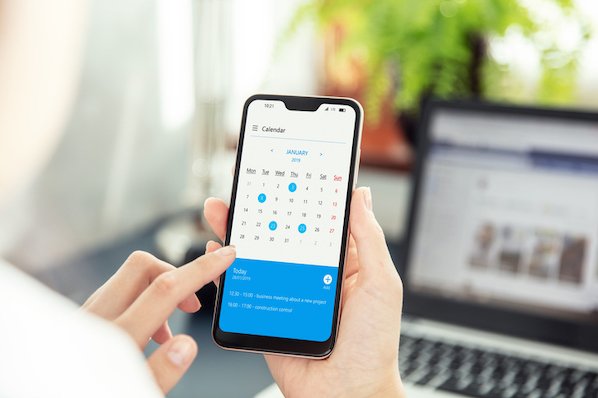What if you could make your Google Ads campaigns as powerful as in-person recruitment meetings? Google’s responsive search ads can help you boost the results of your Google Ads for education marketing.
If by now you’ve established the basic elements of your digital marketing strategy, you’ve probably jumped into some form of Pay-per-Click campaign (PPC) to increase your brand awareness.
And if you haven’t yet, you should really think about putting some money in your marketing budget for paid ads in search engines and social media.
While your content should be optimized to bring in as much organic traffic as possible, organic traffic is not enough.
Benefits of Paid Traffic
Paid traffic is the perfect complement to organic traffic (web visitors that come because they found you in a search or through a link on someone else’s page). Because if you’ve put in the time to make the content suitable for an organic approach, then it will be the highest quality content your visitor will find to answer their questions.
In other words, create quality content for your audiences as if you only had organic traffic to rely on. Then, drive traffic to your content with paid traffic.
Paid traffic (a.k.a. Search engine marketing–SEM) does more than supplement the traffic you’re going to get organically.
Done right, PPC campaigns, like Google Ads for education marketing, can also increase your organic traffic.
Paid ads and content marketing are a powerful mix that can help motivate prospective students and parents to consider your college, university, or independent school. You really need both of them working together to get prospects into your enrollment pipeline.
That’s where the real magic happens.
Marketing is a powerful tool to get new students enrolled at your school.
But marketing can’t hold a candle to the persuasive effect of an in-person meeting with one of your recruitment officers or a visit to your campus.
One-on-one communication is almost always more effective than a marketing campaign at getting a prospective student to say “Yes!” to your school.
It’s not that you don’t need education marketing. You’ve got to market your education brand!
But the point is as marketers, we have to keep our eye on the prize — making that one-on-one meeting with the recruitment officer happen.
Getting Personal with Google Ads for Education Marketing
So why is the personal meeting more effective than our marketing?
Because in personal communication, you can customize each message to fit the person to whom (audience) you’re speaking and the situation (context) to which you’re referring.
It all happens in real time.
They give you information about themselves, their dreams, and their goals. You process that information and offer them a fully customized answer within seconds.
The number of questions they could ask you are unlimited. And the number of answers you could give are unlimited.
The ability to respond uniquely to a visitor’s question in real time is one reason personal communication is so powerful.
What if you could make your Google Ads campaigns more like a personal interaction?
That would make your search engine ads more effective for the same amount of money, right?
That’s why I’m a big fan of Google’s responsive search ads.
How Responsive Search Ads Work
Basically, Google responsive search ads are a collaboration between you, the education marketer, and Google’s AI.
(That’s right. You can recruit a robot to help you get the right message to your audience at the right time. It’s really that cool.)


According to the Google blog, you simply have to provide Google Ads the content for multiple ad elements, and then Google’s machine-learning software pieces them together in various ways to optimize your results.
Simply provide up to 15 headlines and 4 description lines, and Google will do the rest. By testing different combinations, Google learns which ad creative performs best for any search query. So people searching for the same thing might see different ads based on context.” – Jerry Dischler, Google Vice President, Product Management
It seems that these responsive ads can try out new variations of your Google Ads for education marketing depending on who the search engine user is, where they live, the search engine terms they entered, etc.
And that gets your marketing closer to the power of personal interaction.
Making Google Ads Work for You
Now that we know how it works, how can you take advantage of the value of this cool, relatively-new tool?
I highly recommend that you revisit your school’s Ads account. You may or may not have access to Responsive ads yet, but if you do…
Step 1: Look at your current campaigns and choose the ones that are performing the best.
Step 2: Create variations of the ad components for each of those ads (headlines, calls to action, and descriptive text).
Step 3: Launch at least one responsive ad in each of your ad groups. An article on the Search Engine Land’s blog says, “One responsive search ad can include 15 options for headlines and three options for description lines.”
That should be enough for Google to work with as it learns which variations of your ad perform well and which ones don’t.
Step 4: Keep at least one static text ad in each of your ad groups.
You’ll want to keep a strong text ad (like you’ve been creating) for Google to show users if it doesn’t show your responsive ad.
Using Google Ads for education marketing is becoming an even better tool for education marketers.
Featured image by worldwide_stock via Adobe Stock
Robot hand image by LIGHTFIELD STUDIOS via Adobe Stock
Click here to read this article on the Caylor Solutions website.





